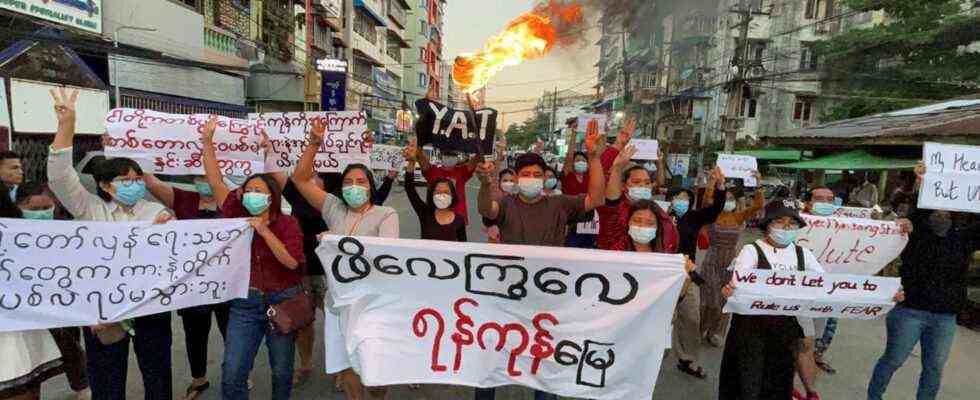As of: December 6th, 2021 4:25 p.m.
Nobel Peace Prize winner Suu Kyi was sentenced to four years in prison in Myanmar. The allegations: call for violence and violation of corona measures. Now the military junta has halved the prison sentence.
Following the conviction of Nobel Peace Prize laureate Aung San Suu Kyi, the military junta in Myanmar reduced her prison sentence from four to two years. Junta chief Min Aung Hlaing is giving Suu Kyi and former President Win Myint two years’ imprisonment, state television reported. In addition, Suu Kyi was allowed to remain under house arrest and did not have to go to prison, it said, citing the military leadership.
The disempowered de facto head of government Suu Kyi and the ex-president had previously been found guilty of inciting rioting against the military and violating corona requirements.
A number of allegations
Suu Kyi and former President Win Myint were deposed in February after a military coup. The 1991 Nobel Peace Prize laureate has since been covered with a series of accusations by the now ruling military junta.
She is also accused of corruption, betrayal of secrets and electoral fraud. Overall, the 76-year-old is facing decades of imprisonment.
The allegation of incitement to riot related to statements made by Suu Kyi’s National League for Democracy (NLD) party shortly after the military coup, in which it condemned the takeover of power by the generals. The charge of violating corona requirements is related to the 2020 parliamentary election, in which the NLD won a clear victory.
Message blackout imposed
The exact allegations are unclear as the junta put a news blackout in place prior to the trial. Journalists were not admitted to the trial in a special court in the capital, Naypyidaw. Most recently, Suu Kyi’s lawyers were also banned from speaking to journalists.
A spokesman for the military junta announced the sentence initially announced without further explanation: two years imprisonment for sedition; two years imprisonment for “disaster management” – that concerns the corona rules in Myanmar.
Sharp criticism from the UN, EU and human rights activists
The United Nations, the EU and human rights activists reacted with strong criticism to the condemnation of Aung San Suu Kyi. “The conviction of the State Councilor after a sham trial in a secret trial before a military-controlled court is nothing other than politically motivated,” said UN Commissioner for Human Rights Michelle Bachelet. “It’s not just about the arbitrary denial of their freedom – it closes another door to political dialogue.”
The EU also condemned the process as a political process. It is “a clear attempt” to exclude democratically elected heads of state and government such as Aung San Suu Kyi and the National League for Democracy from the inclusive dialogue process called for in the ASEAN five-point consensus, stressed EU foreign policy representative Josep Borell. He reaffirmed the “unreserved support” of the EU for the ongoing efforts of the Southeast Asian confederation ASEAN to resolve the crisis in the member state diplomatically.
Human Rights Watch: Proceedings “100 Percent Political”
Phil Robertson, Myanmar expert with the international human rights organization Human Rights Watch (HRW), called the process “100 percent political from day one”. It “was carried out with the clear intention of locking her up forever so that she could never again question the rule of the military”. In the face of a series of further trials against Aung San Suu Kyi, Robertson prophesies that the military junta will ensure that she “will never be a free woman again.”
Thousands of dead were the military coup
After the verdict, people in Yangon rattled pots and pan lids again – a sign of protest. The day before, an army jeep had raced into a demonstration and killed five people; a video of it is circulating on Twitter.
The army has killed more than 1,000 people since the February 1 coup. It has not broken the anger and indignation of the people, resistance has tended to increase recently.
With information from Holger Senzel, ARD-Studio Singapore

